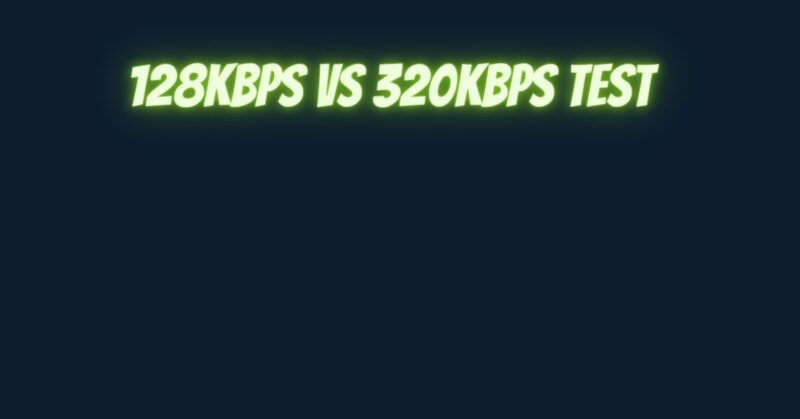A 128 kbps vs 320 kbps test is a blind listening test that is used to compare the sound quality of 128 kbps and 320 kbps MP3 files. The goal of the test is to see if people can tell the difference between the two bitrates.
There have been many 128 kbps vs 320 kbps tests conducted over the years, and the results have been mixed. Some people can tell the difference between the two bitrates, while others cannot.
The factors that can affect the results of a 128 kbps vs 320 kbps test include:
- The quality of the source material: The original sound recording will have a significant impact on the sound quality of the MP3 file. A high-quality recording will sound better than a low-quality recording, even at lower bitrates.
- The quality of the encoder: The software that is used to encode the MP3 file can also affect the sound quality. A high-quality encoder will be able to produce a better sound quality than a low-quality encoder.
- The playback equipment: The device that is used to play the MP3 file can also affect the sound quality. A high-quality playback device will be able to reproduce the sound quality of the file more accurately than a low-quality playback device.
- The listener’s hearing: Some people have better hearing than others, and they may be more likely to be able to tell the difference between the two bitrates.
Ultimately, the best way to decide if you can tell the difference between 128 kbps and 320 kbps is to conduct your own blind listening test. You can find many online resources that can help you do this.
Here are some tips for conducting a blind listening test:
- Use a high-quality source material.
- Use a high-quality encoder.
- Use a high-quality playback device.
- Have a friend or family member help you conduct the test.
- Blindfold yourself so that you cannot see the file names.
- Listen to each file multiple times.
If you can consistently tell the difference between the two bitrates, then you may want to consider using 320 kbps files. However, if you cannot tell the difference, then you may be able to get away with using 128 kbps files, which are smaller and take up less space on your hard drive or other storage device.

